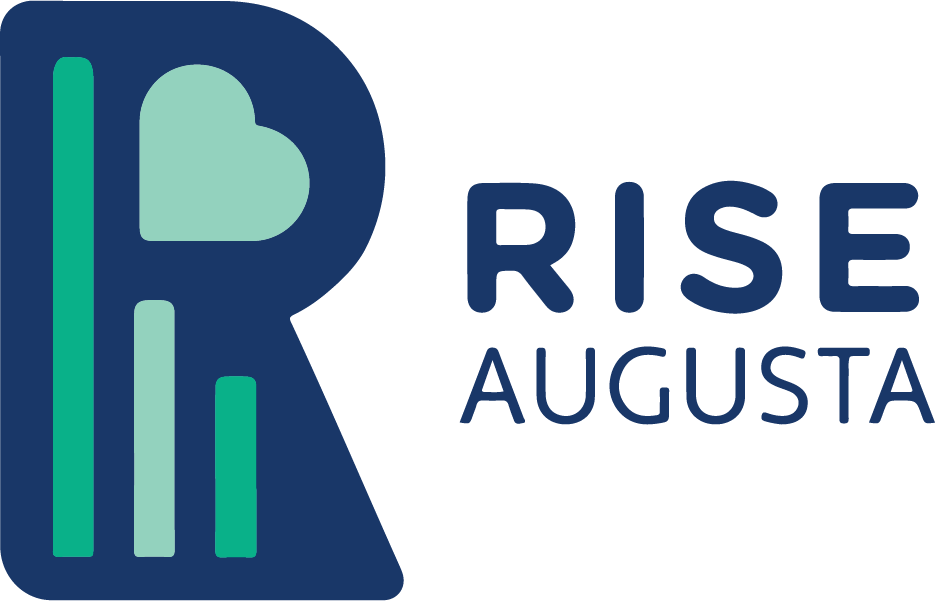
Our Mission
We believe in the potential of all children to rise above adversity, stay in school, and achieve in life.
Who We Are
We are growing and changing to meet our community’s needs!
We are excited to report that RISE Augusta, previously known as Communities In Schools of Augusta Richmond County (CISARC) is on the ground working, growing, and helping children to succeed! Although we are proud of the excellent programs and outcomes we were able to deliver as a Communities In Schools' affiliate, becoming RISE Augusta allows our organization to do even more while focusing on our unique community needs. RISE Augusta will continue to provide all of the valuable remediations, mentoring, and basic needs services to students in the community that we are known for, but now we can broaden our literacy services and can focus on programs identified as critical needs in our specific community. Our transition allows us to provide services to even more students than ever before. Celebrate with us as we Realize Individual Student Success Everyday (RISE)!
More than anything else, RISE Augusta believes that to truly lift people out of poverty and to embrace the 21st century, education is a major key. We must create a culture of success and expectation that every student–no matter the personal circumstance–can and deserves the opportunity to be prepared, motivated, and equipped to reach his or her greatest potential.
We know that education is key to future success
We know that our community schools need additional resources and support
We know children must be inspired, encouraged and prepared to become successful adults
We know that we can be part of the change that propels students to successful futures!
We know that Literacy is key to unlocking the doors to learning.

Why we do what we do.
In the U.S., 11.9 million kids live in poverty in the United States, 36% of Richmond County, GA children live in poverty.
We want all kids to succeed!
Poverty and its overall impact on children and communities is a major obstacle to the health of any community. Education’s promise cannot on its own lift all poor students from where they started. Education can narrow the achievement gap and it can be a positive beacon for success, but non-school factors like one’s living conditions, its impact on student health, cognitive development, familial make-up, and social-emotional growth are all critical to a child’s success.
In the U.S., 11.9 million kids under 18 live in poverty, shouldering more than they should have to. Without community support, they are more at risk for missing school, dropping out and failing to earn a high school diploma. By helping our most vulnerable students stay in school and succeed in life, we are building stronger, healthier and more economically stable communities where every person is capable of reaching his or her greatest potential.
The Importance of Reading to Children
“Reading to young children is proven to improve cognitive skills and help along the process of cognitive development. Cognitive development is the emergence of the ability to think and understand; it’s “the construction of thought processes, including remembering, problem-solving, and decision-making, from childhood through adolescence to adulthood” (HealthofChildren.com).
When you begin reading aloud to a child, it provides them with background knowledge on their young world, which in turn helps them make sense of what they see, hear, and read.
“Language is the most powerful tool human beings possess. And reading is one of the most fulfilling and effective means to master this tool.
Reading allows children to understand various emotions. This helps in their emotional and social development since they learn to associate their feelings with words and find a way to express themselves better.” (KidsRKids.com)
Literacy
Students need literacy in order to both engage and understand the written word in everyday life. Aside from books, one must be able to read articles, manuals, signs, labels, and even messages on cell phones. Beyond the functional level, literacy plays a vital role in transforming students into socially engaged citizens. Being able to read and write means being able to keep up with current events, communicate effectively, and understand the issues that are shaping our world.
Wrap Around Supports
When basic needs are not being met in a child’s life, “other concerns will then take precedence over learning and achievement.” The student cannot be ready to learn because their efforts and attention are focused on survival and meeting the lower level needs. They may instead, “act out and cause disruptions or be insubordinate” (Burleson and Theron, 2014)
Everyone needs a helping hand sometimes.
RISE Augusta often provides wraparound supports to help children overcome obstacles to their school success. For instance, some working poor and families in poverty have complex issues that can ultimately impact their children at school. Needs like school supplies, food, clothing, shoes, access to health care, eye glasses, adaptive aids, and even some school-sponsored events can be barriers to disadvantaged children. By providing what they need or facilitating extra support on their behalf, RISE Augusta empowers students to concentrate on their success in school and not on obstacles.
Connecting families to the resources they need can also help improve attendance. Improving student attendance can result in stronger family and community relationships resulting in a better sense of safety in the school culture (Bryk, 2010)
Wraparound services are a very individualized and holistic care management process for youth. RISE Augusta works closely with schools, families, students, and other organizations to help our students overcome their obstacles to school success, including but not limited to mentoring, tutoring, remediation, basic needs, and enrichment.
Be a part of the solution.
We are committed to demonstrating diversity, equity, and inclusion in our behaviors, principles,
and practices.



